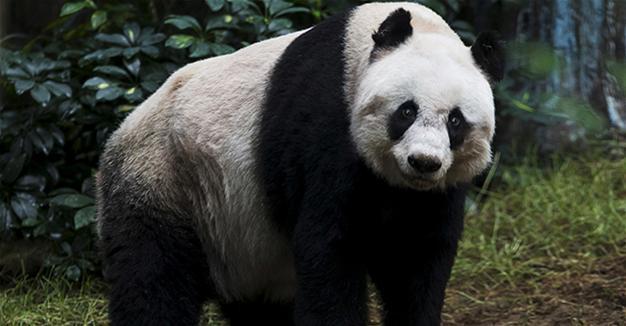Hong Kong mourns world's oldest captive giant panda
HONG KONG - Agence France-Presse

Visitors to a Hong Kong theme park mourned the world's oldest captive giant panda Jia Jia on Oct. 17, a day after she died there aged 38.
Jia Jia was put down at Ocean Park Sunday after her health rapidly worsened and left her unable to walk without difficulty, the park said.
On Monday there were two buckets of flowers outside the panda enclosure and a sign commemorating Jia Jia's death.
"Jia Jia was a member of the Ocean Park family who had spent 17 wonderful years with Hong Kong people and she will be deeply missed," the sign said.
Visitors expressed sadness at the news.
"She was just lovely. So natural. She was just beautiful," said one elderly visitor at the park with her granddaughter.
Another visitor who gave her name as Apple said she was disappointed.
"I was waiting to see the panda... (I) didn't know the panda had died already."
In a commemorative video from Ocean Park, those who had worked with Jia Jia mourned her loss.
"I wish her to rest in peace and know how much we appreciate all that she has given to us, to the people of Hong Kong and all our visitors," said Suzanne Gendron, executive director of zoological operations and education at the park, speaking on the memorial video.
The park has said it will set up a "memorial corner" for Jia Jia in time for the weekend.
Born in the wild in China's Sichuan province in 1978, Jia Jia was given to Hong Kong in 1999 to mark the semi-autonomous city's handover by Britain two years earlier.
In July 2015 the giant panda was presented with a towering birthday cake made from ice and fruit juice with the number 37 carved on top.
Jia Jia, whose name translates as "excellence", picked at fruit slices and bamboo around the ice cake to celebrate her big day as a record-breaking bear -- becoming the oldest panda ever living in captivity.
There are fewer than 2,000 pandas now left in the wild, according to the World Wildlife Fund, as their habitats have been ravaged by development.
Given their low birthrate, captive breeding programmes have become key to ensuring their survival.
According to Ocean Park, Jia Jia gave birth five times to six cubs.
 Visitors to a Hong Kong theme park mourned the world's oldest captive giant panda Jia Jia on Oct. 17, a day after she died there aged 38.
Visitors to a Hong Kong theme park mourned the world's oldest captive giant panda Jia Jia on Oct. 17, a day after she died there aged 38.